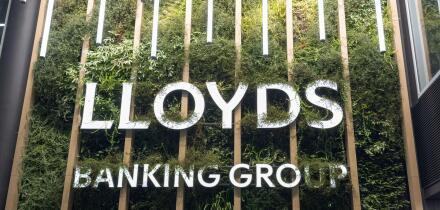
The spectacular growth of ESG over the last 18 months is also driven by the way sovereigns, banks and corporates have all sought to prepare for future shocks as they deal with and recover from the impact of Covid-19.
BNP Paribas, one of the first banks to make sustainability a strategic priority, was well-placed to have those conversations and advise on the way forward.
“ESG is embedded in the discussions we have internally and with issuers and investors on the narrative of future-proofing business models and funding strategies after Covid,” says Giulio Baratta, head of investment grade finance. “We are a bank that wants to be at the forefront of transition in the evolution of our business model and policies, and we move together with our clients.”
The bank’s capital markets front office is a single entry point for clients to discuss capital structure and funding strategy, and ESG is intrinsically part of the conversation whether or not a deal is being discussed, says Anjuli Pandit, sustainability manager for primary capital markets.
Unusually for an ESG expert, she sits alongside the bank’s bond syndicate team to facilitate discussions with issuers and investors. “Almost half of my work is on regular ESG dialogue for conventional issuance to enhance the level of engagement that issuers have with their fixed income investor base on the topic,” she says. “Investors are increasingly using ESG criteria to make investment decisions, even for conventional instruments.”
The integrated approach means that BNP Paribas starts a dialogue with corporates at the strategic level before thinking about the potential to implement sustainable finance in any form. Baratta says that sequencing has also been played out across sectors, for example in the energy industry.
“It started with green energy, and then moved to the transition concept for conventional energy where it’s been evolving into new business models and into new instruments. First, we were talking about strategies that made green capex eligible for green bonds, then transition bonds and now SLBs [sustainability-linked bonds] are further expanding the possibility for sub-sectors to find the right KPIs.”
This year’s big story has been the opening-up of ESG finance to a much wider range of issuers and sectors through the rapid take-up of SLBs following the publication of the Sustainability Linked Bond Principles administered by ICMA.
BNP Paribas has been driving the development of this market. BNP Paribas structured the first SLB post the 2019 Enel transaction, with Chanel in Europe in September 2020, and has also been championing the expansion of SLBs into the high yield market, for example, supporting Constellium in dollars in February 2021 and then in euros during May.
The development offered both issuers and investors an alternative to traditional green bonds. Issuers from high-carbon emission sectors that are nonetheless committed to a transition strategy can opt for SLBs, for instance.
“It means we have two instruments that can cover a range of investments,” says Agnès Gourc, co-head of sustainable finance markets. “SLBs have really opened up a lot of sectors but each instrument serves a different purpose and a different market.
“Investors that want to have a really specific impact will tend to go towards green and social bonds, and those investors that are keen to see more medium and long term progress being achieved will go towards SLBs.”
Sustainable finance also made huge inroads into the high yield bond market this year, up from very little in 2020. “We’ve been pushing hard to get investors engaged as well as issuers and I think that sustainability linked bonds has found a good fit in high yield,” says Pandit.
The past 18 months will also be remembered as the point when social bonds started making an impact, first through Covid response programmes, and then in late 2020 with the arrival of the European Union’s €100bn SURE programme of issuance. BNP Paribas is helping coordinate the ICMA working group on social bonds, and Gourc says that the focus for the coming year will be to ensure that the wave of interest in the product is sustained as the immediate coronavirus relief efforts fade.
“If we want really social bonds to fully open up, we need to have corporates coming to the market,” she says. “What we’re trying to do on the ICMA working group is find ways to make it easier for a broader range of issuers to become involved.”






